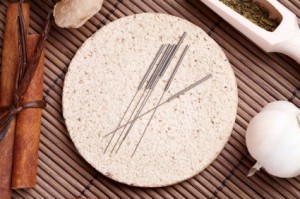Dave Asprey's Blog, page 271
December 20, 2012
7 Tips for a Bulletproof Holiday Season
 Holidays are a source of stress for most people – between the aroma of mouth-watering (but junk-filled) desserts, trying to buy perfect gifts, and navigating the weird emotions your brain stem and mammalian brain have automatically associated with holidays.
Holidays are a source of stress for most people – between the aroma of mouth-watering (but junk-filled) desserts, trying to buy perfect gifts, and navigating the weird emotions your brain stem and mammalian brain have automatically associated with holidays.
The cool thing is that if you adopt the biohacker mentality, you can really enjoy the holidays without the stress. The holidays are a time to break free from your daily routine, but they are not an excuse to break your commitments to yourself. You don’t have to backslide on your hard work and start over due to holiday temptations.
If you spent time upgrading your life during 2012 – remember why you did it, and even write it down and keep it with you to read when you feel tempted to sabotage your health.
Here are 7 tips to Stay Bulletproof this Holiday season:
1. Stick to the green side of the Bulletproof Diet
Eating right is at the core of avoiding stress and extra pounds during the holiday season. Be conscious of the Bulletproof diet and set a goal(s) on what you are willing eat. Sometimes this means eating before an event. That gluten-based cheesecake won’t look so good if you’re full of Bulletproof coffee!
Three key ingredients to avoid this season include gluten, sugar, and omega 6 oils. Some of these foods include beer, wheat, vegetable oil, and fruit juice. By adhering to the major principles of the diet, your brain will function better, which in turn will help you make better choices and handle stress better. Family annoyances are much easier to deal with when your hardware is healthy and optimally functioning.
If you do stray into the red zone of the Bulletproof Diet, avoid the “what the hell” effect. The “what the hell” effect is the idea that one slip leads to an avalanche of giving up the goal. People may say to themselves “Oops, I screwed up, why bother trying, I may as well go out big,” then one cookie turns into 10 cookies and meal laden with gluten, omega 6 oils and other crap harms your performance and reduces resilience.
If, like me, you are at the point in your transformation where these types of food look as appetizing as rocks, and temptation is not an issue, great! Share in the comments below how you got there.
If you are like most people, you’re not there yet, so if you do slip into the red zone—be kind to yourself- acknowledge that you’d like to make better decisions about what you put in your body, and pay attention to how the food made you feel. Review your reasons as to why you want to stick to this commitment and think about what you could have done to avoid the craving or temptation in the first place. There is no need to beat yourself up, that may actually make you more likely to slip.
Let’s face it: you’re always on the Bulletproof Diet because it’s a spectrum. Every bite you take from now until when you die either helps your performance, is neutral, or harms your performance. Santa doesn’t change that.
Worst case scenario- get yourself back on track at the Bulletproof Conference, January 17-19, 2013, in San Francisco.
Other helpful tips are included below:
Introduce the Bulletproof Diet to the Family
Cook Your Own Holiday Meal with the Upgraded Chef
The Complete Bulletproof Diet Infographic
2. Hacking Desserts
Now this is a willpower challenge! With Grandma’s cookies, Mom’s apple pie, and other once a year favorites flooding your senses, desserts are hard to avoid. And they are doubly difficult if you’ve got emotional connections to toxic foods that you’ve been nibbling on since childhood.
If you’ve got an emotional connection to food, acknowledge what it meant to you, and provide yourself with alternatives to using that food to impact that emotion, and yes, some of them may be yummy alternatives! The best dessert hack is to bring your own:
Other Bulletproof desserts (or pre-dinner snacks) to include during the season are dark chocolate, nuts, and dark berries. Upgraded Vanilla and Chocolate Powder are great Bulletproof toppings if you do not make desserts this year.
It’s also shockingly easy to make your own eggnog using a blender, butter, like Kerrygold Unsalted, or canned coconut milk, water, MCT oil, eggs, nutmeg, and your sweetener of choice either Stevia or xylitol. There’s no way you’ll have room for apple pie after a tall glass of health-promoting eggnog.
3. Exercise with High Intensity
Exercise is great for many reasons during the holidays; it can burn off excess stress hormones, the right amount keeps you fit, and it makes it healthy to eat more of your favorite Bulletproof foods.
In an interview with Keifer, from Dangerously Hardcore, we discuss how after workouts your muscles have the ability to absorb sugar despite remaining insulin insensitive. Kiefer calls the dietary protocol that uses this “trick” “Carb Back loading.” That means if you workout hard, healthy carbs (rice, high-starch vegetables, berries) will be processed faster in your body and, according to Keifer, help build muscle.
If you want to maximize a heavier carb meal, be sure to complete a high intensity workout before eating. Exercise can also be helpful for blowing off some steam if you find you’ve got extra energy, or want a break from festivities.
4. Get Adequate Sleep
Sleep is one of my favorite ways to battle stress during the holiday season (naps do wonders!). Getting quality and regular sleep will help you stay high performance, maintain emotional regulation, make more choices that are in alignment with your biohacking goals and commitments to yourself.
As biohackers, there are tons of tools to help us hack sleep.
Track your sleep with a Zeo, take vitamin D in the morning, and take magnesium before sleeping. We cover all aspects of sleep hacking in the articles below:
Hack Your Sleep with Dr. Jonathan Wisor, Ph.D
The Top 6 Ways to Improve Sleep with Food
Sleep Hacking Pt. 1: Sleep Less, Do More
Sleep Hacking Pt. 2: Add 20 More Years to Your Life
Sleep Hacking Pt. 3: Using Biochemistry
5. Avoid the Holiday Hangover!
Getting together with family or coworkers usually means the liquor cabinet is open for business, especially during the holidays. Below is your guide to biohacking your holiday booze intake:

For more information and to read about Bulletproof alcohol, see the post and check out the comments too.
6. No Calorie Counting
For many, counting calories, and trying to stay within a certain range at this time of year is extra stressful and can be demoralizing, lending to giving in to the “what the hell” effect. The good news is, that counting calories (unless you enjoy it like stamp collecting), is also a waste of time.
Remember, it is not the number of calories you eat. Calories are a measure of energy – hormones are what make you fat. The quality of the food you eat is what matters. Stack on the grass-fed butter and grass-fed beef during your holiday dinners and your scale will not disappoint you in the morning. Here are a couple of links to the myth of calories:
Sorry Time Magazine, It Is Not the Calories
Naked Calories Podcast with Jayson and Mira Calton
7. Bulletproof Gifts for Everyone!
Are you having trouble finding the perfect gift?
It is tough to find great gifts when it seems like our loved ones already have most of what they want. If being Bulletproof has helped change your life – why not pay it forward to someone you love and help them be healthier too? Participate in the fun of the gift of giving while minimizing the stress this Holiday season, or help people get a jump on their resolutions! Here are a few Bulletproof ideas:
Coffee is a holiday favorite. Do not forget the grass-fed butter and Upgraded MCT to make it Bulletproof. Vanilla does not only need to be used for food – it is also a great way to add a lovely aroma to any house. You may get all of these holiday treats at UpgradedSelf.com, including our newly launched kits to make it easy to be bulletproof. More ideas include:
Gifts for Biohackers Pt. 1: Tech
Gifts for Biohackers Pt. 2: Books
Happy Holidays!
Before the gifts, the food, the booze, and the biohacking this holiday season – take a step back and remember why we celebrate the holidays.
It is a time to enjoy the company of the loved ones in your life, and be thankful for what you have and don’t have (i.e. that extra baggage, disease, etc). If you want an extra challenge, see if there are any difficulties you have had that you can be grateful for too. For example, while it sucked at the time, I’m grateful for the time I was fat, as it helped motivate me to find a better way to live and become Bulletproof.
Here at The Bulletproof Executive, I am thankful for the ability to share and exchange ideas about how to upgrade your life through biohacking. This is a labor of love, and each time you share your experiences in the Forum, on Facebook or via Twitter – you are enhancing the Bulletproof community. When you share it with friends and loved ones outside the community, even if only through your example, you become an inspiration for someone else.

Thanks to all of you who have taken the time to let me know how this work has helped you to lose weight, gain focus, or just be a better person. It keeps me motivated!
May you have a happy, safe & Bulletproof Holiday and New Year!

December 14, 2012
The Top 5 Ways to Avoid a Bad Night’s Sleep

photo by iMorpheus
We’ve all been there. It’s been a long, stressful, yet productive day, and you’ve worked yourself to the limit. For the last few hours of work, all you wanted was to go to bed, but you got the job done. Now, you’re finally home, you’ve eaten a great Bulletproof dinner, and it’s time for bed. There’s one problem – falling asleep is taking too long.
Despite the layers of fatigue covering your eyes and slowing your performance, for some reason, your brain just won’t turn off like you want it to. This is a common problem for many executives and really, just about any hard working person. Luckily, there are ways to keep a restless brain from destroying your sleep. Here are the top five ways to fix a bad night’s sleep.
1. Activated Charcoal
In Step 7 of the personal Upgrade Series, you learned how toxins can limit your performance and how to remove them. One of the reasons people start sleeping better on the Bulletproof Diet is because they’re detoxing. Toxins interfere with your sleep by causing inflammation in your brain. A major source of toxins for many people is bad gut bacteria.
Studies have found a connection between sleep debt and bad gut bacteria in animals. In rats, bacterial infections often travel to the gut, where the toxins can cause sleep deprivation. Other studies have shown that changes in gut bacteria can have a significant impact on learning and memory, probably from the increase or decrease in toxins traveling to the brain. Another theory says that lack of sleep at night causes stress in your probiotics, which causes them to secrete more toxins.
Eating the Bulletproof Diet and taking a high quality probiotic are the best way to optimize your gut bacteria, but sometimes you need a little extra help. Activated charcoal acts like a vacuum cleaner, and adsorbs (even better than absorbing) the toxins from your digestive tract before they can reach your brain and cause inflammation. However, activated charcoal is small potatoes (pun intended) compared to Upgraded Glutathione.
2. Lipoceutical Glutathione
Glutathione is one of the most powerful antioxidants and detoxifiers your body makes. It’s essential for removing toxins, protecting fats from oxidation, and assisting in immune function and brain function. One of the ways it helps you sleep is similar to activated charcoal, although faster acting and more powerful.
Glutathione drastically increases your liver’s ability to bind and remove toxins. Many people have lower than optimal glutathione levels due to stress, infections, poor diet, and other problems. If you’re low on glutathione, your body can easily get overwhelmed with toxins and inflammation. While activated charcoal only targets toxins in your gut, lipoceutical glutathione helps your liver remove toxins that are already in your bloodstream and other tissues. This means you get a more complete detox, and even more profound improvements in sleep quality.
Glutathione doesn’t work when you take it orally because your body digests it before you can use it… unless you take Upgraded Glutathione, which wraps the precious glutathione molecule in a proprietary blend of MCT-based lipids. This allows the glutathione to penetrate the lining of the gut and raise blood levels of glutathione dramatically. This technique is exactly the same one used in advanced pharmaceutical delivery systems, but here we’re using it to bring a natural substance into the body more efficiently. That’s totally Bulletproof!
3. Deep Breathing Exercises
Non-beneficial stress is a terrible waste. Not only does it decrease immune function, shorten your lifespan, and impair sexual performance, it can also destroy your sleep. Perhaps the most common reason people report not being able to sleep is that they don’t know how to clear their mind and stop worrying.
Deep breathing exercises like Art of Living, pranayama yoga, meditation, and other methods can do wonders for helping your brain shut down, recuperate, and prepare for another day of high performance. Another similar but more upgraded technique is HeartMath.
4. HeartMath
While most of us associate an erratic heart rate with stress (or a serious medical condition), it’s not quite that simple. When your body is under stress, the amount of time between your heartbeats becomes steady, consistent, and monotonous. When you’re relaxed, calm, and your heart is in a state called “high-coherence”, the time between your heartbeats is actually different each time. This means you have high heart rate variability, which is correlated with better sleep… and an even a better golf game.
The HeartMath Emwave2 is a small device that helps you to quickly train your heart and brain to work together. It helps you develop high heart rate variability so you can become bulletproof against stress, which improves your sleep and helps you live longer. The great thing about HeartMath is that you can do it almost anywhere, any time, and it gives you objective data as to how much you’ve improved.
If you’re having trouble sleeping, try a few minutes of HeartMath training with an emWave before bed. Even three minutes can sometimes be enough to put the most tweaked out executives to sleep.
5. Bulletproof Coffee
How many times have you heard someone recommend coffee for improving your sleep? Probably never, right? Well, Bulletproof Coffee is a little different from your average latte.
The high quality grass-fed butter and MCT oil in Bulletproof Coffee increase your bile turnover, which is a major way your body removes toxins that decrease your brain function and hurt your sleep. In addition, the short chain fats in the MCT oil supply your brain with ketones which help mental function and sleep.
Bulletproof Coffee is still high in caffeine (that’s a good thing), so you should take it at least six or more hours before bed. Otherwise it may interfere with your sleep. Many of the people I coach report improvements in their Zeo scores after using Bulletproof Coffee, and it’s done wonders for me, especially when I’m on the road.
How to Salvage a Sleepless Night
When you’re young, you can sometimes overcome a lack of sleep problem with cheap coffee and enthusiasm. When people get a little older, they usually rationalize being tired as something that’s just “part of the job.” I tried both of these techniques, and neither of them worked for the long term. Biohacking made it clear why sleep was so hard.
Gut bacteria can produce toxins that interfere with your brain function. By taking activated charcoal, you can stop these toxins from reaching your brain and disturbing your sleep. When you take Upgraded Glutathione, you can remove performance-robbing toxins from your bloodstream and entire body. Deep breathing exercises and HeartMath training can help you relax and take charge of stress that’s contributing to your sleeplessness. And finally, Bulletproof Coffee (in the morning) can help to decrease inflammation and nourish your brain function with healthy fats.
Toxins are just one of many causes of insomnia and low quality sleep, so be sure to read the other sleep hacking articles on the site as well.
As a biohacker, I’m always looking for new ways to hack my sleep. What methods have you used to salvage a sleepless night? Share your thoughts in the comments!

December 12, 2012
The Toxins in Meat Every Biohacker & Paleo Dieter Should Know

photo by comprock
If you’ve been reading the blog or listening to the podcast, you’re probably aware that the right kind of meat in the right amount helps to make you feel Bulletproof. Avoiding meat from healthy animals likely contributed to Steve Job’s death, to the performance decline of vegan athlete Carl Lewis, and is often a reason people become deficient in key nutrients. The right kind of whey protein can boost muscle growth and support your immune system. In Upgraded Chef, some of the most popular recipes have enough meat to make any omnivore salivate. However, even the best sources of protein and fat can be bad for you in excess.
This is virtually unknown in mainstream diets, especially because the misguided “war on fat” encourages people to eat more lean meat. People on low fat, low carb diets by definition eat too much protein. I know this because I spent years doing low carb, moderate fat, moderate protein diets – and felt their effects – before biohacking and health what a high healthy fat diet low in toxins did for my energy, my health, and my cognitive performance.
In an upcoming post, you will learn how consuming too much of certain amino acids can decrease your lifespan, but too much of any protein source can be bad for you in excess. Eating too much protein, especially along with a poor overall diet, can damage your cells, impair your cognitive performance, and decrease your longevity.
When you eat too much protein, your body can become overwhelmed by the task of digesting it. Unlike fats, which are cleanly burned in your cells, your body will try to oxidize the excess protein in your liver. This produces several major toxins that can decrease your performance and damage your health. This post will show you how these toxins are formed, what they do to your body, and how to avoid them, yet get enough protein to support optimal health and performance. Let’s examine our first bad guy…
4-Hydroxynonenal (HNE)
This is actually a derivative of oxidized omega-6 fats found in all of your cells. In small amounts, HNE is actually good for your cells. However, too much can cause serious problems. It’s been linked to chronic inflammation and various diseases including diabetes, cancer, atherosclerosis, and cognitive decline. Incidentally, this is one reason the Bulletproof Diet also recommends very low omega 6 oil intake.
The problem is that when you consume too much protein, your body is put into a state of inflammation, which drastically increases the fat oxidation in your cells. This tips your body’s production of HNE into the red zone, and overwhelms your cell’s detox pathways. It’s double jeopardy when that protein is red meat from soy and corn-fed animals, which is inconveniently wrapped in extra omega 6 oils. Yuck.
You can also absorb excess HNE from food. Almost all meat has some omega-6’s, and if you overcook it, you produce a ton of HNE toxins. These toxins are absorbed into your tissues and cause all of the problems listed above. In fact, for most people, overcooked meat is an even greater source of HNE than consuming too much protein.
Yet again, this is a reason the Bulletproof Diet recommends carefully cooked meat prepared at lower temperatures. It’s also one reason most studies on meat consumption and health are woefully inadequate – they fail to consider how the meat is cooked.
Malondialdehyde (MDA)
Malondialdehyde is very similar to HNE, in that it’s also produced from the oxidation of fats both inside and outside your cells. Like HNE, MDA damages your DNA and your mitochondria. Overcooking the fat in meat also produces MDA.
Acrolein
When fats in meat and proteins are heated, the glycerol in the fat breaks down into acrolein. Acrolein is another major toxin that is so volatile; it can even irritate the ears, nose and eyes on contact. It’s also a potent carcinogen and mutagen, which cause damage to your mitochondrial DNA. There is evidence that acrolein is one of the most carcinogenic compounds in cigarettes. We use it industrially at 10 parts per million to kill weeds and algae.
Glyoxal
Glyoxal is a form of advanced glycation end product, but it also comes from burned fats and protein. Glyoxal is another potent carcinogen that interrupts cellular signaling and damages your mitochondria. It’s often found in overcooked meat and oils, and is easily absorbed from your food.
Knowing this, do you really want that deep fried chicken wing?
How These Toxins Damage Your Performance
All of these toxins are different, but they share a few common mechanisms that derail your health and performance. They all damage your mitochondria and deplete your glutathione levels.
Your mitochondria are the power plants of your cells, and they’re essential for cognitive function, maintaining muscle mass, and generally being in a state of high performance. When your mitochondria are damaged, your cells don’t process oxygen as efficiently, and don’t metabolize fats or sugars as well.
As Danny Roddy and Ray Peat have writen, when cells aren’t able to process oxygen efficiently, or don’t have enough oxygen, they switch from oxidation to glycolysis, which is far less efficient. This process also produces lactic acid, which places stress on your liver. This can kick start a dangerous cycle where toxins damage your cells, which decreases liver function, which impairs your ability to remove toxins.
These toxins deplete your body of glutathione, which can place another stressor on your liver, and makes this cycle even worse. Glutathione depletion also decreases your cognitive performance, as glutathione is needed to shield your brain from inflammatory agents and other toxins.
These are some of the reasons I recommend breathing exercises and supplemental glutathione for Bulletproof practitioners.
How to Stop these Toxins from Damaging Your Performance
HNE, MDA, acrolein, and glyoxal are toxins produced from either eating a bad overall diet, too much protein (even the good kinds), and overcooked proteins and meats. Here are three steps to countering these problems:
Eat the Bulletproof Diet. This minimizes your intake of polyunsaturated fats, oxidized fats, denatured proteins, and other toxins that cause inflammation, which makes more of these toxins.
Follow the macronutrient guidelines from the Bulletproof Diet and aim for around 60-80% of your calories from high quality fats and oils. Also read the upcoming series on protein restriction and longevity for even more details.
Cook your food correctly. This is the trickiest part of this process, but as a general recommendation, cook your foods on moderate to low heat for shorter periods of time, erring on the side of less rather than more. However, the right cooking methods really vary for almost every meat. This is why I wrote Upgraded Chef, a recipe book that teaches you exactly how to prepare your food for optimal performance and health. Including antioxidant spices is a great idea too.
High quality grass fed meat and other clean proteins are a part (up to 20%) of the Bulletproof Diet, but consuming too much or the wrong kinds can produce several powerful toxins that damage your performance. Even vegan processed junk like seitan (wheat gluten), tofurkey, and soy burgers will form the same protein and fat toxins.
The main source of these toxins for most Bulletproof practitioners is overcooked meat and animal products, which is why it’s so crucial to use the right cooking methods. Upgraded Chef shows you how to cook your food to keep toxin production to a bare minimum. It also comes with shopping lists, and a diagram of the diet so you have everything you need all in one place. If you’re interested in upgrading your weekly meal plan, click here to learn more.

December 7, 2012
The Top 6 Ways to Improve Your Sleep Using Food

photo by harinaivoteza
Most people have a hard time connecting what they eat with how their brains work later. Researchers are only beginning to understand how things like fructose make your brain not work as well. If you mention to most scientists that grass-fed butter makes you think faster, they look at you as if you had a second head (which is a perfect analogy, since I feel twice as smart when I eat more butter. 
Not only does the Bulletproof Diet make you smarter, it also helps you sleep more efficiently. Sleep problems are often brain problems, and brain solutions are also sleep solutions. Eating the Bulletproof Diet gets most people much closer to where they need to be in terms of sleep quality and quantity, but everyone can benefit from a little extra sleep quality. I use these techniques when I’m traveling or under a lot of stress. Here are the top six ways you can use diet to improve your sleep.
1. Fill up with fat at dinner.
Fat is like diesel fuel for your mind and body. If your brain is always running on sugar, you get large blood sugar swings that make you tired, but also hungry, which is exactly what you don’t want If you’re trying to fall asleep.
Filling up with clean fats before bedtime gives you a steady stream of energy that prevents hunger and blood sugar swings. Grass-fed butter, animal fat, and coconut oil are all good choices, but MCT oil is my personal favorite. MCT oil is converted into ketones, which are immediately used as fuel for your brain. MCT oil also helps burn body fat while you sleep.
I’ve also noticed that I think faster and more clearly the next morning if I eat 1-2 tablespoons of MCT the night before with dinner, or even right before bed. It works even better with protein. Caution: if you’re not used to any MCT at all, start slowly – too much MCT can cause the runs, which definitely keep you from sleeping well.
2. Prime your system with protein.
We use protein for muscle repair and immune function. Your body repairs muscle tissue at night during deep sleep, and you want to make sure it has everything it needs to heal and grow new tissue. The problem is that most forms of protein are not well digested before bed. A lot of protein powders, and even most animal protein sources are fairly digestion intensive, so they can leave you with a heavy feeling during the night. They also take resources to digest that would be better used fueling your brain.
I recommend taking 1-2 tablespoons of hydrolyzed grass-fed collagen peptide before bed. Hydrolyzing the proteins makes them more digestible, so they don’t cause the problems listed above. When hydrolysis is done right (with enzymes not acids), it doesn’t create MSG.
Collagen protein is even better if you take it with some Upgraded Whey protein.
3. Enjoy the power of whey protein.
Upgraded Whey has some unique benefits in terms of sleep. It’s easily digested, full of essential amino acids for repairing your body, and it contains bioactive milk peptides (BMPs). BMPs are one of the most promising new supplements for improving sleep and reducing stress. BMPs are actually sourced from whey protein, but they’re a lot more expensive after processing. These proteins are most effective in their undenatured form. Heating and pressurizing them actually reduces their effects, which is why I’ve always preferred to get BMPs from cold-processed whey protein concentrate rather than pill form. The most effective whey protein I’ve tested for improving sleep is Upgraded Whey, which also has added bovine serum albumin to increase glutathione levels. More glutathione helps your liver remove toxins that interfere with sleep.
4. Try a tad of raw honey.
During the night, your brain uses a lot of energy. One efficient form of brain energy comes from sugar stored in your liver, called liver glycogen. Your brain taps your liver glycogen before hitting your muscle glycogen (stored sugar in your muscles), so having a little extra sugar before bed can help your brain function better at night. Raw honey is preferentially used to stock liver glycogen, so it is used first for brain function.
Raw honey is 22% better at making liver glycogen than the cooked, conventional stuff you’re likely to find at the supermarket. Taken without protein, a small amount of honey will raise blood glucose while you sleep too. I was skeptical of this trick when I first heard about it in The Honey Revolution, but I found it does work well as long as you don’t combine it with protein.
Especially when you’re doing BP Intermittent Fasting or eating very few carbs, you can get more deep sleep when you take a small amount of raw honey. At first I assumed that taking raw honey before bed would throw me out of fat burning mode, but as long as MCT oil was taken with the honey, enough ketones were produced to stay in fat burning mode. Take 1-2 teaspoons of raw honey before bed if it helps with your sleep.
5. Fuel up with low-mercury fish (or krill oil).
You’ve already learned how DHA can protect against the negative effects of fructose on brain function, but it can also help improve your sleep. Omega-3s have been shown to improve mood and reduce anxiety and depression. They also improve insulin sensitivity and muscle growth. Consuming omega-3s before bed gives your brain the substrates it needs for growth and repair.
The best sources of omega-3s are Bulletproof foods like low-mercury fish and seafood. These foods also provide the protein you need for muscle repair before bed. However, I’ve found that krill oil gives me the best sleep. I’ve experimented with various kinds of fish oil, and pretty much every other omega-3 supplement you can think of, and only krill oil has made a noticeable impact. I recommend consuming your fish or Krill oil at least two hours before bedtime. Avoid flax oil and hempseed oil because they are high in omega 6 and low in DHA and EPA. They are not Bulletproof foods.
at least two hours before bedtime. Avoid flax oil and hempseed oil because they are high in omega 6 and low in DHA and EPA. They are not Bulletproof foods.
6. Enjoy your coffee…in the morning.
Bulletproof Coffee is magical stuff, but caffeine isn’t exactly the best sleep aid. Drinking Bulletproof Coffee puts your mind into an amazing place where you become more productive and perform better. However, you also need to let your mind rest after its high output performances. In general, don’t drink coffee after 2:00 PM, or at least 8 hours before bedtime, which ever comes first. This will make sure you get all of the cognitive benefits of caffeine without sacrificing your sleep. Some people need more than 8 hours of caffeine avoidance to sleep with maximum performance.
It strikes me as odd that most people don’t connect what they eat with how they sleep… but then again, biohackers like me strike people as odd when we add a half a stick of butter to our coffee.
It’s pretty simple. Some MCT oil before bed gives your brain the short chain fats is craves to function during the night. Taking a few scoops of collagen protein mixed with whey protein gives you essential amino acids for repair, and bioactive milk peptides for calming your nervous system. Raw honey stocks your liver glycogen so your brain has that little bit of extra fuel to help deep sleep. Krill oil gives your neurons the fertilizer they need to function optimally. Timing your coffee intake to the morning hours makes sure you keep your brain sharp when you need it, but still give it rest during the night.
Here’s what the entire protocol would look like:
1-2 Tbs of MCT oil.
1-2 Tbs of collagen protein plus1-2 Tbs of Upgraded Whey.
OR
1-2 teaspoons of raw honey.
1 gram of krill oil.
1 cup of Bulletproof Coffee (before 2:00PM, or at least 8 hours before bedtime.)
If you’re interested in more tips to supercharge your sleep, feel better, be healthier, and do more, sign up for the biohacker toolbox using the link at the right. A sleep book is in the works too! What sleep problems have you had? What helps you maximize your sleep?

December 3, 2012
A Little Known Yet Powerful Cause (And Treatment) for Childhood Autism

photo by Jeremy Salmon
In a past article on the Better Baby Blog, you learned how the right gut bacteria and lifestyle interventions could reduce your child’s risk of autism. Breaking research is showing that a new intervention may be even more powerful – glutathione.
A New Possible Cause of Autism
New research is beginning to show that toxins and oxidative stress contribute to autism. These toxins and oxidative stress damage brain cells and upset the delicate balance of neurotransmitters in the brain, which can cause neurological damage, and in extreme cases, autism. Glutathione is the most powerful antioxidant in the body. One of its key functions is to reduce oxidative stress and remove toxins. If you don’t have enough – bad things start to happen. Things like oxidative brain damage.
Children with autism have low levels of glutathione, and often have impaired glutathione detox pathways. The causes of this are many. Increased mercury levels in the environment, bad gut bacteria, and poor diet can all decrease glutathione levels. However, knowing this also lets you attack the problem.
A large-scale review published in the journal of Nutrition & Metabolism looked for possible mechanisms by which glutathione levels could affect autism risk. They found that reduced glutathione synthesis could easily be a key contributor to autism. This theory has sparked a new field of research focused on optimizing glutathione levels as a way to treat autism.
Glutathione for Autism
If children with autism have low levels of glutathione, could increasing their glutathione levels decrease their symptoms of autism?
To answer this question, researchers from Stanford University decided to test the effects of N-acetyl cysteine supplementation on autism symptoms in children. N-acetyl cysteine (NAC) is a precursor to glutathione that increases the body’s production of this vital antioxidant. NAC may also reduce the formation of glutamate, and excitatory neurotransmitter that kills brain cells in excess.
In this new study, 33 children were randomized into two groups. One group consumed 900 milligrams of NAC per day for 4 weeks, and the dose was increased by 900 milligrams every 4 weeks for 12 weeks. At the end of the study, the kids in the intervention group were consuming 2.7 grams of NAC per day. The other group took a placebo for the same amount of time. At the end of the trial, the kids who consumed NAC had a reduction in irritability scores by 80%. There were also minimal side effects.
This was an early study, and more trials are needed to confirm the results. However, there’s no reason you can’t take advantage of this new evidence and start Bulletproofing your child against autism before he or she is even born. In a future article, you’ll learn how to fight autism with glutathione.
There are three ways to increase levels of glutathione, 1) take precursors like whey protein and N-acetyl cysteine (NAC) (quality variations may interfere with raising glutathione levels); 2) get glutathione injections (expensive and inconvenient); and 3) take an oral glutathione supplement, particularly liposomal glutathione. Liposome capsules protect the glutathione from the digestive process and allow it to be absorbed into the body.
Liposomal glutathione is the form we used during both our pregnancies, and we still take it regularly as it helps with inflammation and aids in detoxification of your body.

November 28, 2012
Podcast #32: Hacking your Heart and Preventing Diabetes with Dr. Rocky Patel
Exclusive Interview: Dr. Rocky Patel
 Dr. Patel is a Bulletproof Physician. He is a family physician whose practice is focused on the prevention, early detection and treatment of Diabetes and Heart Attack. He knows his stuff, he lost over 85 lbs practicing what he preaches. He uses Bulletproof diet principles in treating patients in his practice at risk for or who have developed diabetes and/or cardiovascular disease.
Dr. Patel is a Bulletproof Physician. He is a family physician whose practice is focused on the prevention, early detection and treatment of Diabetes and Heart Attack. He knows his stuff, he lost over 85 lbs practicing what he preaches. He uses Bulletproof diet principles in treating patients in his practice at risk for or who have developed diabetes and/or cardiovascular disease.
In addition, he is the chief medical officer for Heart Fit for Duty, providing similar services to the first responder community. For those of you interested in WellnessFx in Arizona, he is a WellnessFX practitioner and his family medical practice is based in Gilbert Arizona.
Click here to subscribe to the podcast in iTunes
Click here to download the podcast directly
What We Cover
How eating more of certain saturated fats and red meat is actually good for you
The differences between type I diabetes, being pre-diabetic, and the stages of type 2 diabetes
What are your thoughts on why the ADA advocates eating fruit, whole grains, non-fat dairy and other? And what have you seen in your practice as to what works and what doesn’t regarding preventing and treating diabetes?
How Dr. Patel helps people being diagnosed as pre-diabetic, or type II diabetic, and what you can do
The root causes of this disease
Myths about cholesterol and heart disease, what factors are more important for prevention
Reducing inflammation
What role does mental health, or attitude play in heart attack?
Testing and bio-markers
Is it possible to have too much saturated fat?
Thoughts on CES machines and other biohacking tools
What are you top three recommendations for someone who wants to be as powerful and high performance in all aspects of life?
Links From the Show
Dr. Patel’s Info
Twitter: @drrcpatel
Diet Tracking
My Fitness Pal (my username: drrcpatel)
Glucose Monitoring
Continuous:
Periodic:
Panels
Nicotine
Nicotine and Fat Burning by Kiefer
Q & A Related Links
Anki, spaced repetition learning
Other products mentioned:
Biohacker Report
A review of the latest research to help you achieve the Bulletproof state of high performance.
Paradoxical sleep deprivation induces muscle atrophy – From The Federal University in Sao Palo Brazil
Critical points of Brazil nuts: a beginning for food safety, quality control and Amazon sustainability – From the Journal of Food Science and Agriculture
Announcements
Shout out to Joe Rogan, Brian Redban, Deathsquad and Taitimus Maximus. Thanks Tait for putting me on Joe’s radar. The show was a blast, we covered a ton of stuff. We had an awesome volunteer, Zack, transcribe the show, which is now in the biohacker toolbox.
Humanity+ I’ll be speaking at this conference in San Francisco December 1st & 2nd. The ‘Humanity+ Conference’ an unprecedented opportunity to engage with today’s leading experts on emerging technologies and trends that will change the way we live. The conference will explore the important ethical and philosophical dimensions of upgrading humanity through technology – whilst sharing the very latest scientific and technological breakthroughs. For details, visit http://2012.humanityplus.org/. My topic will be “The Augmented Author: Technologies to Upgrade People Who Write”
The Bulletproof Conference: Biohack Your Life: Those of you who saw the announcement and signed up for the early notification list have already received your early-bird emails, if you haven’t, check your spam box. General registration is open. We’ve had a few inquiries from people for whom the conference is out of budget, and we will open up the 3rd day of speakers, that will also include some demos, and while awesome, is just not the same as the first 2 days with Jay and I. I expect an over-subscribed conference based on interest so far. This is the only conference like it anywhere where you get access to hands-on biohacking led by world-class people. To hell with learning about biohacking. This is about actually *doing* it.
PaleoFX I’m pleased to have been invited to speak at the second annual PaleoFX Symposium in Austin, TX, March 28-30, 2013. I’m looking forward to meeting awesome speakers like Sarah Fragoso, Nora Gedgaudas, Kelly Starrett, Paul Jaminet and many, many more. Tickets are on sale now, and early buyers who reserve their ticket by Dec 1 will be automatically entered in a contest to win access to a VIP dinner with speakers, or to have the full cost of their PaleoFX ticket refunded. For details, visit www.therealpaleofx.com.
The coffee research study is still taking applicants, a link provided on the podcast page. There are still about 30 spaces to get a free 12 oz bag of coffee if you complete the study (this link says by 11/29, but it will be the first 50 that complete the study to spec). A lot of people have signed up for and started the study, but not enough followed the instructions to get usable data. So make sure you do the two daily sessions at roughly the same time every day, and try not to miss any days. If you must skip days, make sure you don’t miss more than two sessions overall.
Listener Q & A Summary
What is the best way to measure one’s health? What states are most important form it?
How do you manage your information diet (magazines, academic journals, blogs and newspapers, do you read, certain habit or go by feel)?
What do you mean when you say “training your intuition”?
How do you retain so much information? What are your recommendations for other people to increase the amount of information they can retain? (both supplemental and through practice?)
What about spaced repetition flash card programs like Anki and Supermemo?
Is there a difference between rote memorization and being able to fluidly use what you memorize? What techniques work better for each type of memory?
Any hacks for improving your hearing? Is there a difference between directional improvements or simply hearing more no matter the volume?
Questions for the Podcast?
If you have questions or comments, leave them in the comment section below.
You may also ask your questions via…
And… Don’t Forget to Leave a Ranking in iTunes 

November 27, 2012
Video: 6 Biohacks That Will Change Your Life Forever
In this video you’ll hear about six shockingly simple biohacks. By the end of the video, you may apply these biohacks and upgrade your life in the process. You’ll learn how to minimize stress, boost immune function, and maximize your health in order to make your life Bulletproof! Bonus for parents, this video also covers Bulletproof kids.
Watch the YouTube Video, or check out the entire YouTube Channel.
Highlights in the video:
Mistakes parents sometimes make with kids, food and sunshine
Discussion of macronutrients, micronutrients and anti-nutrients
Food, stress and epigenetic
Using your body and learning to breath
How to upgrade your Heart Rate Variability
The Importance of sleep
What are your top 3 favorite upgrades? Share yours here, or on Facebook!

November 21, 2012
Videos: Epigenetics, Superfoods, and 300 lbs to Bulletproof
Some short videos with quick tips for upgrading your life!
1. Epigenetics is a developing field that affects everyone (yes – everyone) and in this video you will learn how you may easily change the expression of your genes (and the genes of your children)! (YouTube link.)
2. Tips for biohacking, tracking, and increasing self-awareness, teaching biohacking to kids, and how I went from 300 lbs to Bulletproof. (YouTube link)
(The other talk referenced, regarding the pulse oximeter is Planes & Oxygen)
3. Bulletproof popquiz– can you guess before the audience does, what superfood I’m referring to in this video? The video also covers the range of benefits from this superfood. (YouTube Link)
What are the biohacks that have been most beneficial to you?

November 20, 2012
How to Fight Depression and Feel Awesome without Drugs

photo by the trial
If you’re like most people, some days just rock. Sometimes you feel superhuman, other times it can just feel like something is just missing. Most people go through these times and rationalize them away as something that’s just part of life. Instead, biohackers learn to reject the idea that most of the these “normal” things are unexplainable, preferring instead to find solutions rather than suffer from the same problems over and over.
For example, most people know that low amounts of sleep make them perform poorly, and that’s just a part of life, or they believe that in order to be thin, you should just get used to being hungry all the time. We’ve seen how those ideas stand up to Bulletproof methods.
Sadness and depression are no different. It is normal to have small amounts of sadness or depression, and they manifest themselves in different ways. Or maybe you’ve experience a loss and it’s totally normal to feel sad and grieve. In those cases, if you don’t feel sad, you’re probably not processing an emotion so you can let it go.
However, sometimes sadness and depression are there for no good reason. When this happens, some people feel lethargic, others tearful, or maybe you just lack your normal level of motivation. Or maybe it manifests as irritability or even numbness. Whatever it is, at the end of the day, it saps your performance and makes you feel less Bulletproof.
So maybe it’s not full-blown depression, but hey, what if you could avoid those little grumpy moments that make your kids stay away from you, or those times your co-workers get coffee from a different floor instead of the coffee bar next to your office? What if you could build your resilience and even prevent it before it starts?
This post will give you some ideas to help transform the type of mild depression that sucks your energy into simple feelings you can work through and release, bringing you back to full strength.
The traditional approach to treating depression is to balance certain neurotransmitters with drugs. Drugs have their place, but many of the ones targeting depression are failures. They often work only as well as placebos, and they have a lot of unwanted side effects. Just like statins, these drugs don’t target the real cause of the disease – just the symptoms. They might help in the short term, but to really solve the problem you need to fix it with a more holistic systems thinking, Bulletproof methods.
While researching the Better Baby Book (due in January!!!) I came across a study on the topic of depression. The study focused on mothers, but the recommendations in it apply to us all.
This study’s four main recommendations for how to fight sadness without drugs are: happiness, spending time outside, exercise, and diet.
I used to have serious mood swings and unjustified bursts of anger that impacted my own health and my relationships with people I care about. That was until I hacked my brain and Bulletproofed my body. I started eating the Bulletproof Diet, lost 100 pounds, and used advanced technology to work my brain into a high performance state. Now, I’d be shocked to feel myself wasting that much productive energy on being angry or depressed. Here’s how you can do the same:
1. Be happy.
Studies have shown that when choose to redirect your attention to the positive, your serotonin levels increase. It’s been known for years that your thoughts can alter blood flow to the brain, but only recently have scientists discovered that how you think can also alter neurotransmitter levels. Meditation has been shown to increase dopamine levels, and feelings of happiness also alter serotonin levels in your brain.
Low serotonin receptor function is associated with poor mood, and high serotonin levels are associated with better mood. Basically, while low serotonin may cause you to feel sad, feeling happy may also increase your serotonin levels. It’s not clear which is more powerful, but one way to increase serotonin may be through psychotherapy methods like cognitive behavioral therapy, meditation, and my personal favorite, HeartMath training.
Doing Heart Math training literally strengthens the part of your brain responsible for turning on the “happy state.”
2. Get outside more.

photo by baaker2009
Mark Sisson has written some excellent articles on the importance of sunshine and light exposure. He’s made a great point about how working outside can increase your productivity, happiness, and health. The problem is that it’s hard to move your office outside (although there are some tricks you can use to make it work). Nevertheless, working outdoors is not something most people are going to do. However, other research is showing that bright light exposure may be a way to help increase serotonin levels and alleviate depressive symptoms.
Bright light therapy is especially effective in pregnant women. On a slightly macabre note, autopsies have shown that people who died in the summer have higher serotonin levels than those who died in the winter. In studies where they purposely restrict tryptophan to lower serotonin levels, bright light prevents the normal drop in serotonin levels. If you’ve been suffering from depression or unexplained sadness, try to get outside more often. If you can’t, think about getting a wakeup light or installing some halogen bulbs in your work area.
In fact, since I live in Canada where it gets dark in the winter, I have 1000 watts of halogen light mounted above my desk, which serves nicely to stave off the winter blues.
3. Exercise.
If you’ve been reading the blog or listening to the podcast for any length of time, you’ve probably figured out that excess exercise is not Bulletproof. However, the right kinds of exercise can be beneficial for a number of reasons. A massive review of most of the available evidence found that exercise is extremely good at improving depressive symptoms and increasing mood. Some forward thinking agencies are even prescribing exercise instead of antidepressants, because “the risk–benefit ratio is poor for antidepressant use in patients with mild depression.” In other words, exercise is more effective and safer, at least for people with mild depression. In animals, exercise increases serotonin levels and the firing rates of serotonin neurons. Does this mean you should start training for the Boston Marathon? No, but it is evidence you might benefit from a strength plan like the one we’ve laid out here. To learn more about the benefits of Bulletproof exercise, listen to our interview with Dr. Doug McGuff, M.D.
4. Diet.
The last, and possibly most effective way to increase serotonin levels in your brain and improve your mood is to eat the Bulletproof Diet. In animals and humans, tryptophan increases serotonin levels. In cases of light to moderate to depression, tryptophan can also improve mood. Even in healthy people who are ranked as slightly more irritable than most, small amounts of tryptophan can make them more agreeable and less irritable. However, there is a difference between dietary and supplementary tryptophan.
Tryptophan supplements raise serotonin levels, but dietary tryptophan does not. If you do take tryptophan as a supplement, don’t take it when you have recently eaten protein, the other amino acids in protein compete with the absorption of tryptophan in the brain.
There is also evidence that a high tryptophan diet may be bad for you over the long-term. However, there are a few foods that may increase serotonin levels. Some of the proteins in whey can improve mood in humans after just a few hours. This might be one of the reasons people feel so much better eating Upgraded Whey.
In the end, changing the types and amounts of protein you eat is probably less effective than the types and amounts of fat you eat. Studies have shown that consuming omega-3s improves mood. On the other hand, consuming large amounts of oxidized artificial trans fats can decrease your mental performance and hurt your mood. When you eat these fats, they’re assimilated into your brain and other tissues. They replace the fats that you need like omega-3s, and make you more irritable, less intelligent, and less Bulletproof.
The Bulletproof Diet is high in omega-3 fats, clean saturated fats, and moderate amounts of animal protein to give your body what it needs for a stable mood, but not too much to cause inflammation.
How to Bulletproof Your Brain Against Depression without Drugs
Like most recurring problems, the Bulletproof approach is to try what should work, if that works, great. If no, then do what “shouldn’t” work. Drugs are supposed to be some sort of cure all for depression and mood disorders, but most of them don’t work very well. Here’s what you can do to help prevent and fight depression without turning to medication:
1. Practice pleasure. Use meditation or Heart Math training to learn to “turn on” a state of happiness that can replace sadness. At a minimum, take some time out of your day to focus on everything you love in life. Get therapy if these things don’t help.
2. Be in nature, or at least pretend to be. Humans evolved over millions of years living outside. Only in the last several thousand have we migrated into the sheet rock caves that we now call offices. Bright light therapy has been shown in several trials to helps alleviate depressive symptoms. If you can, install some bright lights inside your workspace. Being outside is even better, because you’ll also increase your vitamin D levels naturally. At least add a few plants to your work space.
3. Exercise. The right kind of exercise can do wonders for your body and mind. Not only will it get you leaner, stronger, and help you live longer, it also improves your mood. Use a plan like the Bulletproof Body or Body by Science to strengthen your mental and physical abilities.
4. Eat the Bulletproof Diet. Avoiding toxins and getting enough – but not too much – tryptophan will help your mood. The Bulletproof Diet also optimizes your omega-3 to omega-6 fatty acid ratios, which improves your brain performance and overall health.
Using a combination of high doses of fun, bright lights or nature exposure, the right kind of exercise, and the Bulletproof Diet, you can help fight mild depression and optimize your mental performance.
How do you take care of yourself when you are down? What has worked for you?

November 14, 2012
How to Cure Insomnia with Acupuncture
 Poking yourself with sharp objects might not seem like the most effective way to improve your sleep, but first impressions are often misleading.
Poking yourself with sharp objects might not seem like the most effective way to improve your sleep, but first impressions are often misleading.
The Bulletproof approach is to try what is supposed to work, and if it doesn’t, then go outside the box to try what shouldn’t work. Acupuncture for sleep problems is a perfect example. I’ve worked to improve my sleep efficiency for years, and have tried just about everything under the sun, from EEG neurofeedback, to smart drugs, to (surprisingly) honey (more on that in a future post). Many of these techniques have worked, and some haven’t, and you can find most of them in my sleep hacking posts.
One of the sleep improvement techniques that has consistently proven to be effective for me, and many others, is acupuncture.
As Chris Kresser has written, acupuncture has gained an undeserved reputation for being an unsupported practice with no evidence behind it. The truth is that acupuncture not only works on the basis of pure self-experimentation and Chinese medicine – there’s also strong clinical evidence behind acupuncture for sleep. In fact, I consider acupuncturists to be some of the first biohackers, and the idea that a needle can modulate the flow of electrons in your skin is not hard to believe at all.
The Evidence Behind Acupuncture for Insomnia
A preliminary report in 2004 found that in patients with anxiety, acupuncture increased nighttime melatonin production and total sleep time. The patients who received acupuncture also fell asleep faster, were less aroused at night, and were less stressed. The researchers concluded that, “Acupuncture treatment may be of value for some categories of anxious patients with insomnia.”
Another study found that acupuncture improves sleep quality in patients with HIV, among whom sleep disturbance is a common problem. The researchers found that, “Sleep activity and sleep quality significantly improved following 5 weeks of individualized acupuncture…”
Other studies have shown that acupuncture works for people without health problems, too. A study in 1999 found that acupuncture improved sleep quality in normal people with insomnia. Sleep hackers, pay attention!
Another benefit of acupuncture is relief from chronic pain, which is a common contributor to sleeplessness.
My extensive self-testing confirms these findings. I started using acupuncture to improve my mental performance, and found that it noticeably improved my sleep quality as well. In fact, I’m at my most productive on the days I do acupuncture, both at work and in bed when it’s time to sleep.
3 Steps to Using Acupuncture for Sleep Hacking
If you’re interested in trying acupuncture to improve your sleep, here are the steps you need to take:
Find a qualified acupuncturist. There are several websites that you can use to search for an acupuncturist in your area, with acufinder.com being one of the most popular.
Make sure you “click” with your practitioner. Acupuncture is about more than just needles – you have to be comfortable and confident in the person’s healing abilities. This isn’t to say that an acupuncturist you don’t like won’t help, but you’ll get more out of the experience if you like them and they understand your body and mind.
Give the process an honest effort, and at least several treatments before you decide if it helps or not. Sometimes it takes several visits before you notice major changes, and other times the improvements are immediate and lasting. I’ve never had an acupuncture experience that wasn’t hugely noticeable, but I see very well qualified people and I’m trained to be in touch with my nervous system.
Acupuncture may not seem like the best way to improve your sleep, but research and my personal biohacking experiments have shown that it is. While it’s received a reputation for being a bit “woowoo,” acupuncture can actually be an effective way to improve your sleep quality.
Have you, or are you going to try acupuncture? What have you used it for? Did it improve your sleep? I appreciate your comments.






